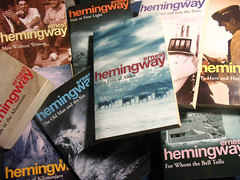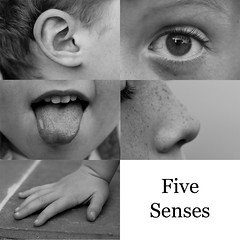| 14700720600 | alignment | Cohesion between the focus of an inquiry, the method of collecting information, the process of analysis of the information, and the conclusions made to increase understanding of that focus. | 0 | |
| 14700720601 | argument | A claim or thesis that conveys a perspective developed through a line of reasoning and supported by evidence |  | 1 |
| 14700720602 | assumption | A belief regarded as true and unstated |  | 2 |
| 14700720603 | author | One who creates a work (e.g., article; research study, foundational, literary, or philosophical text; speech, broadcast, or personal account; artistic work or performance that conveys a perspective and can be examined |  | 3 |
| 14700720604 | bias | A personal opinion, belief, or value that may influence one's judgment, perspective, or claim |  | 4 |
| 14700720605 | claim | A statement made about an issue that asserts a perspective |  | 5 |
| 14700720606 | commentary | Discussion and analysis of evidence in relation to the claim which may identify patterns, describe trends, and/or explain relationships |  | 6 |
| 14700720607 | complex issue | Topic involving many facets or perspectives that must be understood in order to address it |  | 7 |
| 14700720608 | concession | Acknowledgment and acceptance of an opposing or different view |  | 8 |
| 14700720609 | conclusion | Understanding resulting from analysis of evidence |  | 9 |
| 14700720610 | context | The intent, audience, purpose, bias, situatedness, and/or background of a source or reference |  | 10 |
| 14700720611 | conventions | stylistic features of writing (grammar, usage, mechanics) |  | 11 |
| 14700720612 | counterargument | an opposing perspective, idea, or theory supported by evidence |  | 12 |
| 14700720613 | credibility | The degree to which a source is believable and trustworthy |  | 13 |
| 14700720614 | cross-curricular | Goes beyonjd the traditional boundary of a single content area or discipline |  | 14 |
| 14700720615 | deductive | A type of reasoning that constructs general propositions that are supported with evidence or cases |  | 15 |
| 14700720616 | evidence | Information (e.g., data, quotations, excerpts from texts) used as proof to support a claim or thesis |  | 16 |
| 14700720617 | fallacy | Evidence or reasoning that is false or in error |  | 17 |
| 14700720618 | implication | A possible future effect or result |  | 18 |
| 14700720619 | inductive | A type of reasoning that presents cases or evidence that lead to a logical conclusion |  | 19 |
| 14700720620 | inquiry | A process for seeking truth, information, or knowledge through a study, research investigation, or artistic endeavor/work |  | 20 |
| 14700720621 | interdisciplinary | Involving two or more areas of knowledge |  | 21 |
| 14700720622 | issue | Important problem for debate or discussion |  | 22 |
| 14700720623 | lens | Filter through which an issue or topic is considered or examined |  | 23 |
| 14700720624 | limitation | A boundary or point at which an argument or generalization is no longer valid |  | 24 |
| 14700720625 | line of reasoning | Arrangement of claims and evidence that leads to a conclusion |  | 25 |
| 14700720626 | literature | The foundational and current texts of a field or discipline of study |  | 26 |
| 14700720627 | perspective | A point of view conveyed through an argument |  | 27 |
| 14700720628 | plagiarism | Failure to acknowledge, attribute, and/or cite any ideas or evidence taken from another source |  | 28 |
| 14700720629 | point of view | A position or standpoint on a topic or issue |  | 29 |
| 14700720630 | primary source | An original source of information about a topic (e.g., study, artifact, data set, interview, article) |  | 30 |
| 14700720631 | qualification | A condition or exception |  | 31 |
| 14700720632 | qualitative | Having to do with text, narrative, or descriptions |  | 32 |
| 14700720633 | quantitative | Having to do with numbers, amounts, or quantities |  | 33 |
| 14700720634 | rebuttal | Contradicting an opposing perspective by providing alternate, more convincing evidence |  | 34 |
| 14700720635 | refutation | Disproving an opposing perspective by providing counterclaims or counterevidence |  | 35 |
| 14700720636 | reliability | The extent to which something can be trusted to be accurate |  | 36 |
| 14700720637 | resolution | The act of solving a problem or dispute |  | 37 |
| 14700720638 | secondary source | A commentary about one or more primary sources that provides additional insight, opinions, and/or interpretation about the primary source data, study, or artifacts |  | 38 |
| 14700720639 | sequencing | The organization of curriculum content into an order which progresses from simple to more complex |  | 39 |
| 14700720640 | solution | A means of answering a question or addressing a problem or issue |  | 40 |
| 14700720641 | text | Something composed (e.g., articles; reearch studies; foundational, literary, and philosophical texts; speeches, broadcasts, and personal accounts; artistic works and performances) that conveys a perspective and can be examined |  | 41 |
| 14700720642 | thesis | A claim or position on an issue or topic put forward and supported by evidence |  | 42 |
| 14700720643 | tone | The way in which an author expresses an attitude about his or her topic or subject through rhetorical choices |  | 43 |
| 14700720644 | validity | The extent to which an argument or claim is logical |  | 44 |
| 14700720645 | vocal variety | Changing vocal characteristics (e.g., pitch, volume, speed) in order to emphasize ideas, convey emotion or opinion, or achieve other specific purposes |  | 45 |
AP Seminar Glossary Terms Flashcards
Primary tabs
Need Help?
We hope your visit has been a productive one. If you're having any problems, or would like to give some feedback, we'd love to hear from you.
For general help, questions, and suggestions, try our dedicated support forums.
If you need to contact the Course-Notes.Org web experience team, please use our contact form.
Need Notes?
While we strive to provide the most comprehensive notes for as many high school textbooks as possible, there are certainly going to be some that we miss. Drop us a note and let us know which textbooks you need. Be sure to include which edition of the textbook you are using! If we see enough demand, we'll do whatever we can to get those notes up on the site for you!

